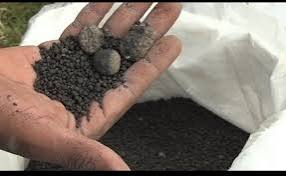
Iliyasu Abdullahi Bah
Fertilizer stands as a non-negotiable pillar for achieving national food security, essential for crop development and agricultural productivity across every region of Nigeria. However, crippling economic hardship, driven by hyperinflation, dollar exchange volatility, and collapsing purchasing power, has created a catastrophic scenario where farmers, as primary fertilizer consumers, are forced to purchase inputs based solely on affordability rather than quality, inevitably acquiring substandard chemicals that ruin harvests.
This dire reality compelled the Chairman of Jigawa State All Farmers Association of Nigeria (AFAN), Muhammad Garba, to issue an urgent Sunday press statement demanding immediate intervention from the Consumer Protection Council (CPC) and Standards Organisation of Nigeria (SON), decrying how “unscrupulous elements exploit exorbitant fertilizer prices and farmers’ technical ignorance to flood markets with toxic counterfeit products,” systematically sabotaging agricultural output.
Local farmer Malam Haladu attested to this devastation, lamenting in an interview with the Journal Nigeria how “blatant suppliers of substandard fertilizer deliberately undermine northern Nigeria’s agricultural production, ensuring zero yield improvement.”
Farmer Isa Yahaya branded the crisis treasonous, declaring, “Counterfeit fertilizer sales constitute sabotage and treason against the nation. Anyone weaponizing poverty to devastate citizens’ food security commits a treasonable offense. Authorities must mobilize immediately to crush this menace before hunger engulfs our communities.”
The convergence of economic vulnerability and criminal opportunism now threatens not just seasonal harvests but the very foundation of Nigeria’s food sovereignty, demanding military-backed raids on counterfeit warehouses, federal price controls on genuine fertilizers, and treason prosecutions for perpetrators under Section 419 of the Criminal Code Act to prevent fraud.
Resident of Damaturu, Kachalla Ali, said, “It is very difficult for our rural farmers, who form the majority in the farming business, to differentiate between standard and substandard fertilizers because of the way the commodity is labelled and packaged.”
According to the Vietnam Chamber of Commerce and Industry, it was reported in 2022 that the agricultural industry alone loses US$2.5 billion each year due to the use of fake and poor-quality fertilizers.
Noting that fake fertilizers often contain incorrect ratios of essential nutrients or lack them altogether, this deceptive practice not only jeopardizes the health of crops but also undermines the foundational principles of sustainable agriculture. The incorrect composition of fake fertilizers translates into reduced nutrient supply for crops.
According to Nabcore, citing the Indian Ministry of Chemicals and Fertilizers, fake fertilizers typically contain inadequate nitrogen content, leading to reduced crop yields and compromising the nutritional needs of plants. The widespread distribution of such fake urea not only affects the economic stability of farmers but also contributes to the overall reduction in agricultural productivity.
As a result, farmers experience reduced crop yields, directly impacting their livelihoods and contributing to global food insecurity.
